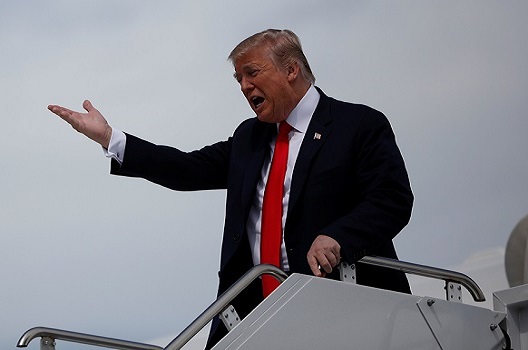 European leaders have vowed to try to salvage the Iran nuclear deal if US President Donald J. Trump carries out his threat to withdraw later this week. But unlike the Paris climate accord and the Trans-Pacific Partnership (TPP) trade deal, the Joint Comprehensive Plan of Action (JCPOA) would have great difficulty surviving without US participation.
European leaders have vowed to try to salvage the Iran nuclear deal if US President Donald J. Trump carries out his threat to withdraw later this week. But unlike the Paris climate accord and the Trans-Pacific Partnership (TPP) trade deal, the Joint Comprehensive Plan of Action (JCPOA) would have great difficulty surviving without US participation.
The United States’ European and Asian allies would strenuously complain and seek ways to protect oil imports and other trade and investment with Iran if Trump refuses to renew sanctions waivers by May 12. But many companies would be unlikely to risk the hefty fines that violating US sanctions could entail. Already, major multinational firms are putting Iran plans on hold.
Tehran may not react immediately, but the government of Iranian President Hassan Rouhani would be under intense domestic pressure to resume aspects of the nuclear program restricted by the JCPOA. Those that fear that the agreement would allow Iran to get close to a nuclear weapons threshold in a decade or so would have to confront that possibility much sooner.
It is hard to understand why Trump would risk creating a new proliferation crisis at a time when he is preparing for more high-stakes diplomacy with North Korea—a country that, unlike Iran, already has nuclear weapons. Indeed a close congressional ally of the president, Rep. Mark Meadows (R-NC), has said that Trump will punt on Iran again precisely to avoid a negative impact on the upcoming summit with North Korean leader Kim Jong-un. Others, however, have suggested that Trump wants to show Pyongyang how tough he is by blowing up what he has repeatedly derided as a “terrible” deal with Tehran.
Trump’s animosity toward the JCPOA appears to reflect a narcissistic view that he can negotiate a better deal, as well as a desire to undo the chief foreign policy achievement of his predecessor. But the chances for such a renegotiation are slim given the Trump administration’s apparent aversion to direct talks with Iran and reluctance to provide new incentives for deeper Iranian concessions.
Read the entire piece at the New Atlanticist.
Image: US President Donald J. Trump tweeted on May 7 that he would announce his decision on whether to extend a sanctions waiver on Iran at the White House in Washington on May 8. (Reuters/Aaron P. Bernstein)
